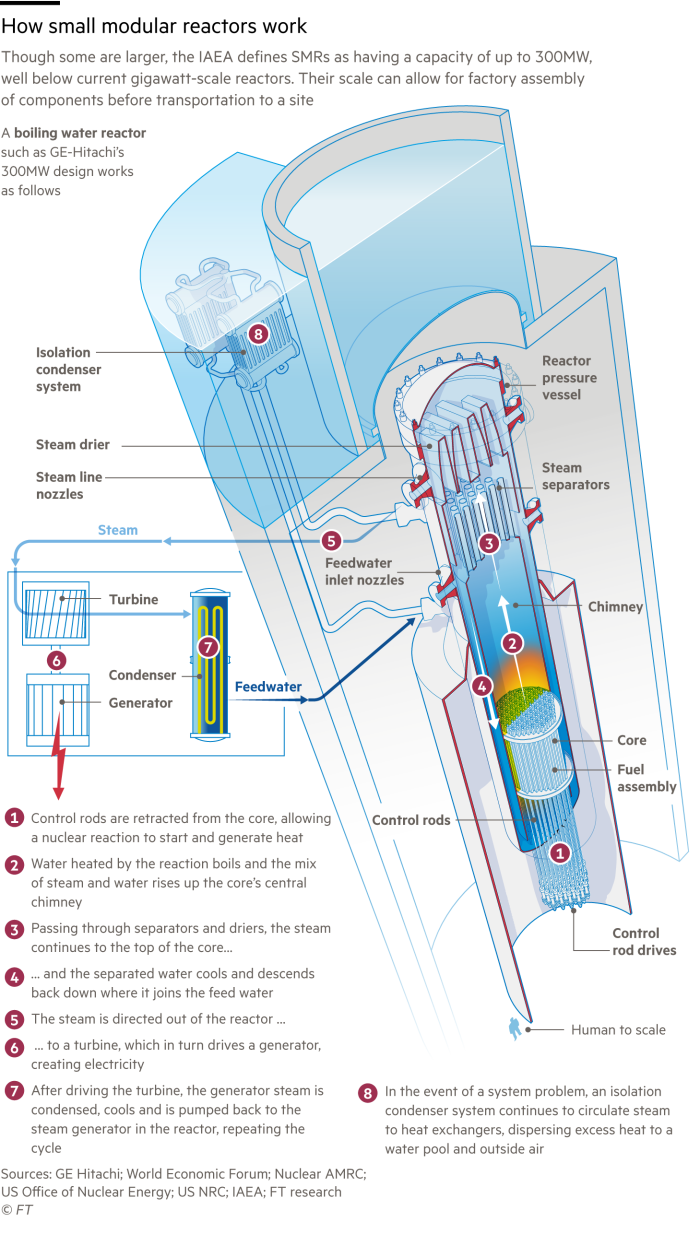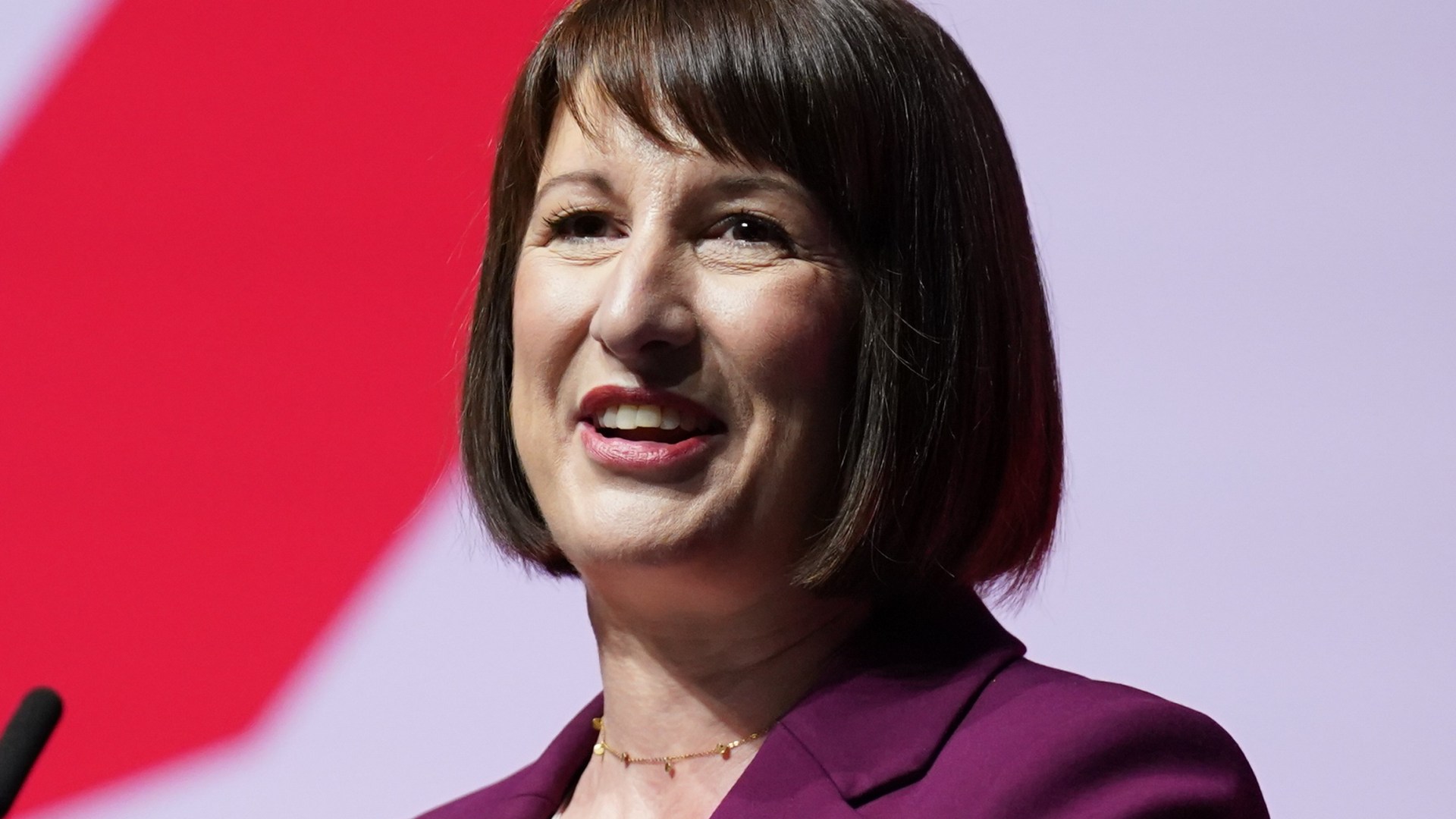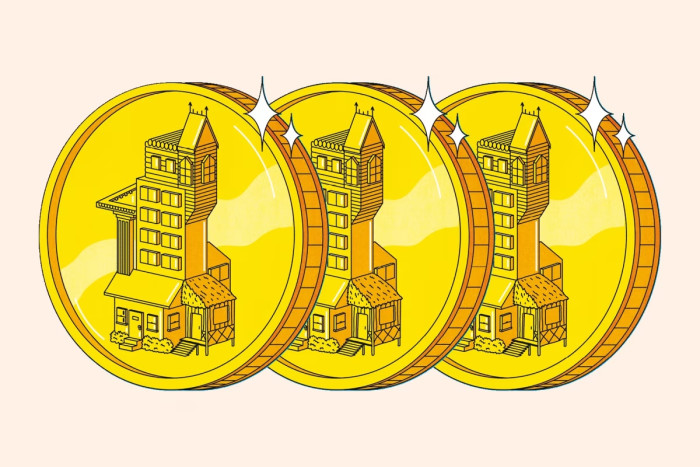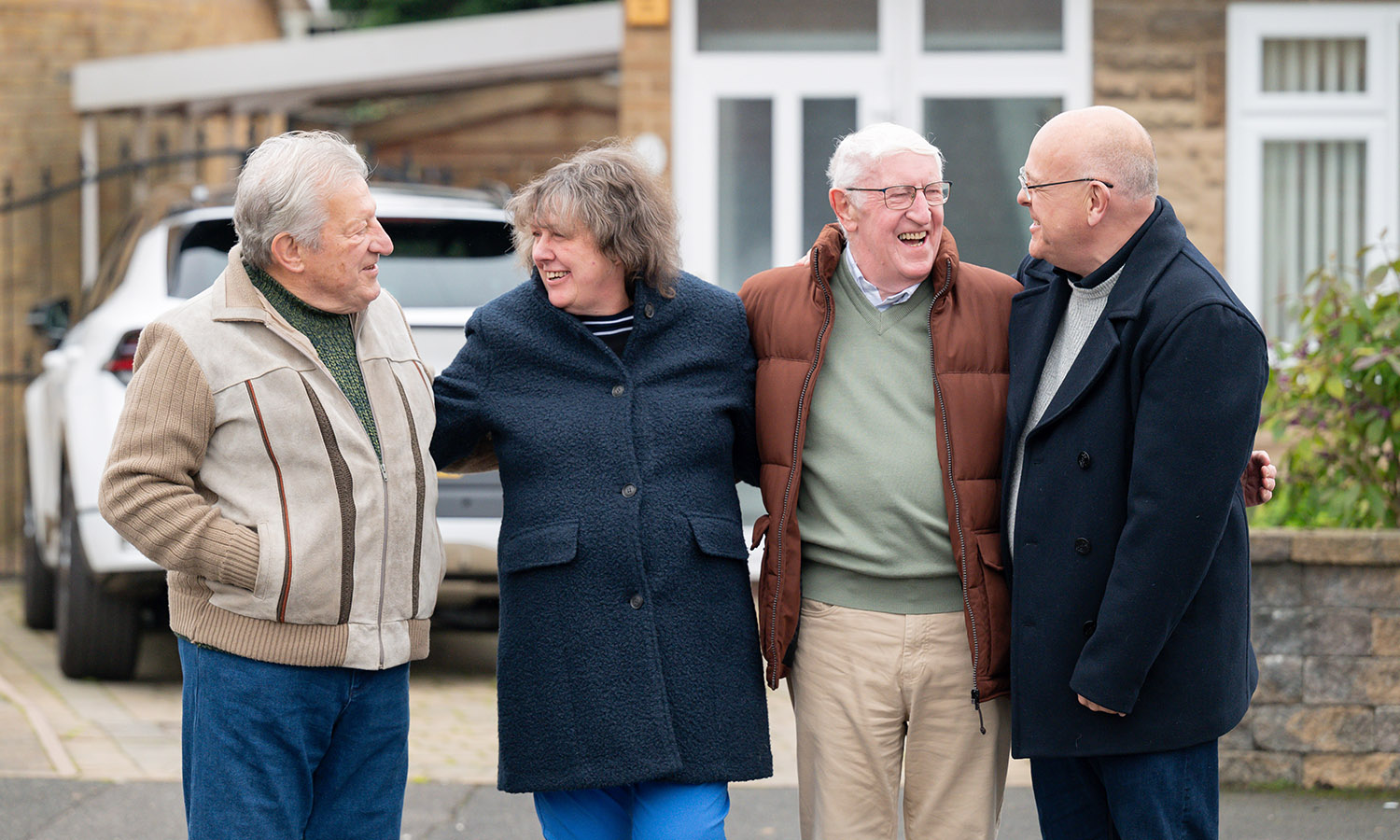Shares in nuclear energy companies surged to record highs this week after Amazon and Google struck landmark power supply deals, boosting efforts to deploy the first small modular reactors (SMRs) in the US.
The share prices of US-listed SMR developers Oklo Inc and NuScale power rose by 99 per cent and 37 per cent respectively in the past week, after rivals X-energy and Kairos Power, two private SMR developers, announced the financing agreements. Shares in Cameco, Oklo, NuScale, Constellation and BWX Technologies all traded at record highs over the week.
The deals support the deployment of up to a dozen next-generation reactors to provide low-carbon electricity to power Amazon and Google’s energy-hungry artificial intelligence data centres.
Investors regarded the announcements as evidence that a nuclear renaissance is gathering pace, after a slump following the Fukushima accident in Japan in 2011.
The proliferation of data centres is driving historic growth in US power demand, undermining efforts to reduce reliance on fossil fuel and decarbonise.
Shares in Constellation Energy Group, which operates the largest fleet of conventional reactors in the US, have more than doubled since the start of the year.
Last month Constellation signed a 20-year power supply deal with Microsoft, which will lead to the reopening of the Three Mile Island nuclear plant in Pennsylvania. The location was the site of the most serious nuclear accident in US history, when one of the reactors suffered a partial meltdown.

Uranium producer Cameco’s shares are up 38 per cent this year while nuclear components supplier BWX Technologies’ stock has surged 65 per cent.
Reactor companies “have been saying for some time they would be needed to meet the AI power demand boom but no one seemed to believe them”, said Seth Grae, chief executive of Lightbridge Corporation, a nuclear fuel developer and chair of the American Nuclear Society’s International Council.
“These large investments show the tech industry does not feel renewables and batteries can provide enough stable or cost-effective power and nuclear will be needed,” he said.
Until recently investors have been wary about financing the rollout of small reactors, which are touted by proponents as smaller, safer and more efficient than large-scale nuclear reactors. Concerns about the industry’s record of delivering projects on time and on budget, combined with high interest rates and a shortage of customers willing to underwrite projects, had slowed progress.

Last year X-Energy was forced to pull a $1.8bn deal to go public through a special purpose acquisition company because of “challenging market conditions”. Shortly afterwards, NuScale cancelled plans to build the first small reactor in the US. Not enough power utilities expressed an interest in purchasing electricity from it after it increased prices by more than 50 per cent over two years to $89 per megawatt hour.
“The dilemma for the [small reactor] industry was that customers did not want to sign up for ‘reactor number one’, as it is more expensive and riskier to build than subsequent reactors,” said Marc Bianchi, an analyst at TD Cowen.
Amazon’s and Google’s decisions to invest in small reactors reflect their need to source reliable, cost-effective and clean electricity to power a new wave of AI data centres. In the first half of 2024, new data centres totalling nearly 24GW were announced by companies, more than triple the same period last year, according to Wood Mackenzie.
“It’s not just about replacing the existing fossil generation but it’s that we need to build more now. This has created a true sense of urgency,” said Mike Laufer, founder and chief executive of Kairos Power, which inked a deal with Google this week to deploy six or seven small reactors by 2035.
The industry is also benefiting from billions of dollars of funding from the US government, which is concerned Russia and China — which have deployed a handful of small reactors — could become unassailable leaders in the nuclear sector. Washington is also cognisant of the need to ensure a stable power system to maintain its lead in AI technologies without leading to an increase in emissions.
“The only constraint on the US remaining the leader in artificial intelligence is power. It’s not land, it’s not chips, it’s power. And so that’s objective number one,” said Clay Sell, chief executive of X-Energy.
But this week’s euphoria around nuclear energy, and small reactors in particular, masks significant risks in deploying a new generation of technology that has been prone to delays and cost overruns in the past, warn critics.

Edwin Lyman, director of nuclear power safety at the Union of Concerned Scientists, said X-energy’s and Kairos’ SMRs were “untested designs” and would probably take much longer to deploy than their target dates in 2030 and beyond.
“The path to safe and reliable commercial operation for any experimental nuclear technology is bound to be rocky and it is virtually impossible today to estimate what the ultimate cost of power will be,” he said.
Tough regulatory standards and challenges remain hurdles, developers of competing energy sources say.
“The euphoria is a little bit overblown,” said Andres Gluski, chief executive of AES, the largest corporate renewables developer, which has signed 5.8GW of power purchase agreements with Google, Microsoft and Amazon.
Solar, wind, and battery storage make up 95 per cent of all capacity waiting to connect to the grid, while nuclear makes up less than 1 per cent, according to data from Lawrence Berkeley National Laboratory. No small reactor projects have begun construction in the US, and more than 80 per cent of announced capacity has yet to enter the development pipeline, according to Wood Mackenzie.
But small reactor developers say they are confident the tech giants’ support is the game changer they need.
“The tech community has placed value on not just carbon free benefits, but also availability and reliability,” said Clayton Scott, chief commercial officer at NuScale. “The momentum is here.”


















































































































































































You must be logged in to post a comment Login